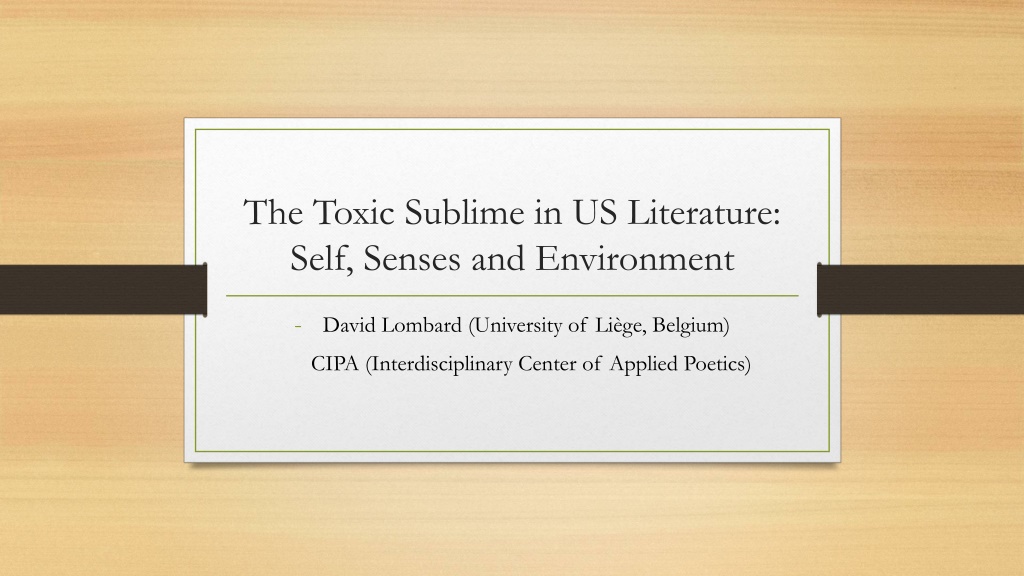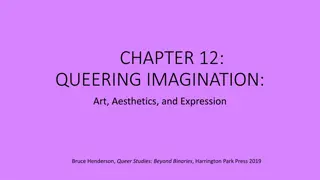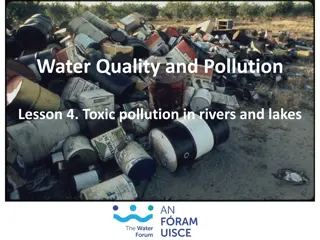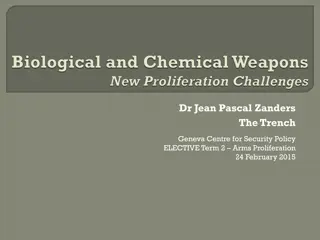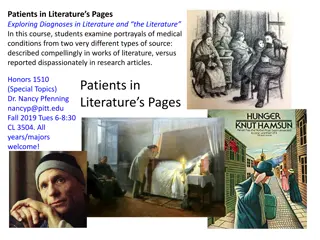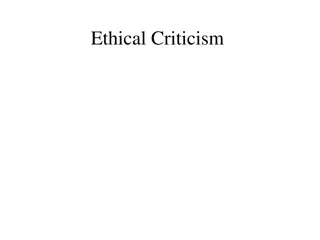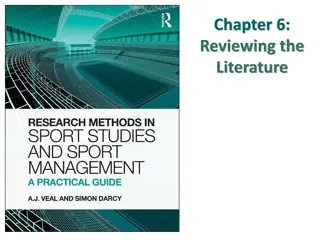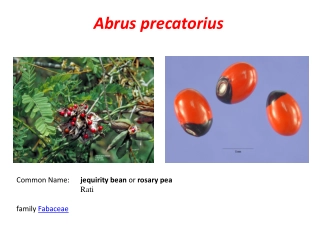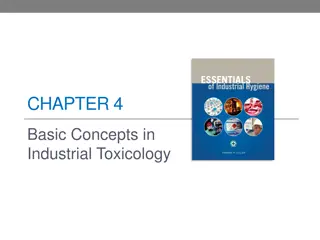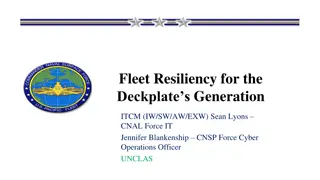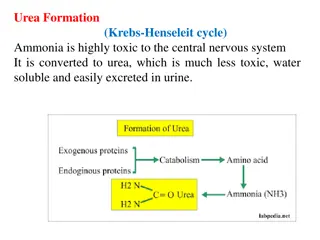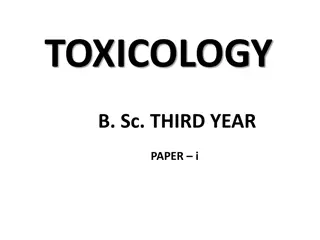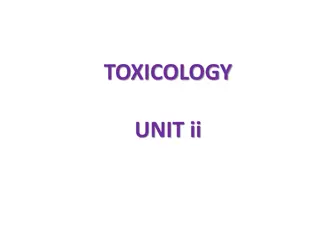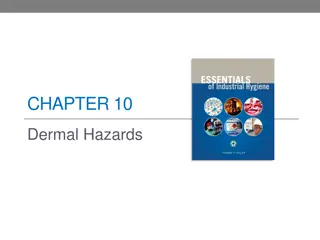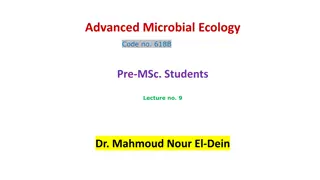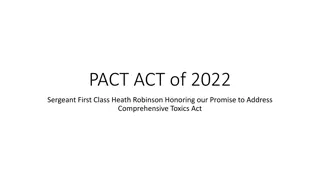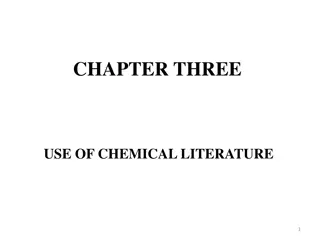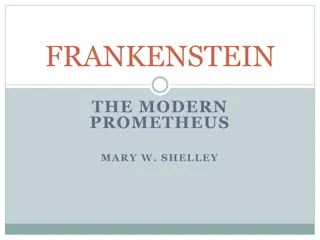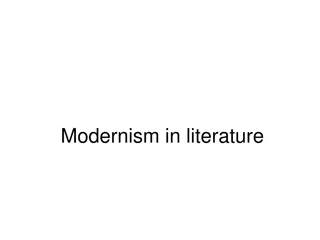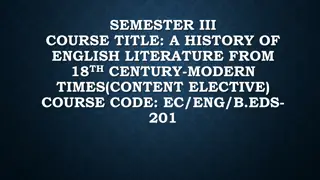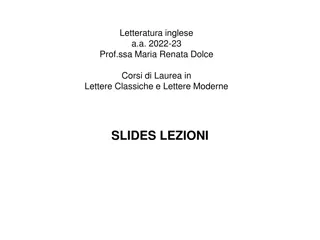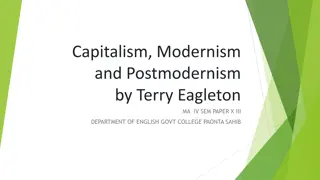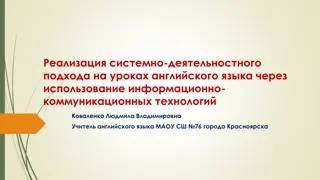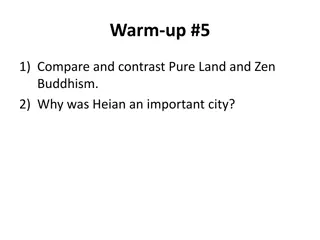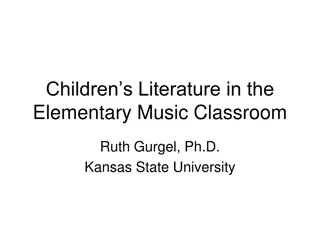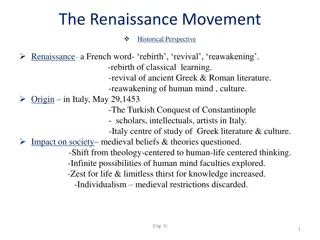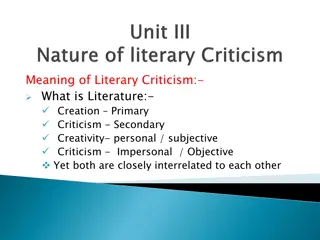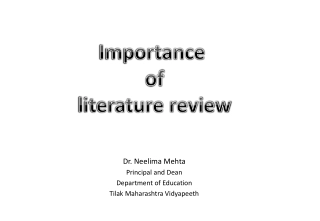Exploring the Toxic Sublime in US Literature
Investigating the aesthetic dimensions of Thoreau's environmental philosophy and its capacity to blur boundaries between natural and technological landscapes, David Lombard's research delves into the concept of the toxic sublime in literature. By redefining the sublime for the Anthropocene era, the work sheds light on the intersection of aesthetics, ecology, and environmental action, emphasizing the importance of sensory perception in analyzing invisible toxicity.
Download Presentation

Please find below an Image/Link to download the presentation.
The content on the website is provided AS IS for your information and personal use only. It may not be sold, licensed, or shared on other websites without obtaining consent from the author. Download presentation by click this link. If you encounter any issues during the download, it is possible that the publisher has removed the file from their server.
E N D
Presentation Transcript
The Toxic Sublime in US Literature: Self, Senses and Environment - David Lombard (University of Li ge, Belgium) CIPA (Interdisciplinary Center of Applied Poetics)
Beginning of my research A (short) book: Techno-Thoreau: Aesthetics, Ecology and the Capitalocene. Macerata: Quodlibet, 2019. Print. https://www.quodlibet.it/libro/9788822903709 [I]nvestigating the aesthetic dimensions of Thoreau s environmental philosophy while examining the philosophical and political implications of its capacity to break down the boundaries between the natural and the technological landscape. [It also] proceeds to develop an alternative, proto-ecocritical form of the aesthetic of the sublime. It also calls for a reconsideration of Thoreau s poetics and its legacy against the background of the toxic sublime , which sheds a new light on the methods and purposes of ecocriticism as well as on recent trends in environmental (non)fiction.
Why the toxic sublime? Why aesthetics? Aesthetics shape our understanding of the environment we inhabit or experience while suggesting that this understanding precedes ecological awareness and environmental action Use of (lower) sensorial perception to analyze forms of (in)visible toxicity The toxic sublime and ecocriticism Lack of interest in the sublime from ecocritics (Hitt 1999, 603) An ecocritical redefinition of the sublime which is appropriate for the Anthropocene context in which there is no more nature that stands apart from human beings (Purdy 2016, 13)
Why the toxic sublime? The toxic sublime and ecocriticism To go further than the practice of rendering (Morton 2007, 33-35) and engage in broader issues (political, aesthetic and otherwise) >< binary views and oppositions (e.g., the pastoral, melancholy, nostalgia, the natural sublime) A compelling example: Susanne Antonetta s memoir Body Toxic (2001) Invisible toxic waste in the Pine Barrens > use of the senses (food/drinks full of good iron and chemicals they could not taste [131-135]) > denunciation of political forces (US governmental laws / military waste)
Thoreau and the Toxic Sublime Travelling on foot very early one morning due east from here about twenty miles, from Caleb Harriman s tavern in Hampstead toward Haverhill, when I reached the railroad in Plaistow, I heard at some distance a faint music in the air like an Eolian harp, which I immediately suspected to proceed from the cord of the telegraph vibrating in the just awakening morning wind, and applying my ear to one of the posts I was convinced that it was so. It was the telegraph harp singing its message through the country, its message sent not by men, but by gods (Thoreau 1985, 143)
Thoreau and the Toxic Sublime [ ] when I hear the iron horse make the hills echo with his snort like thunder, shaking the earth with his feet, and breathing fire and smoke from his nostrils (what kind of winged horse or fiery dragon they will put into the new Mythology I [do not] know), it seems as if the earth had got a race now worthy to inhabit it. If all were as it seems, and men made the elements their servants for noble ends! (Thoreau 2012, 292)
Thoreau and the Toxic Sublime The stabler of the iron horse was up early to put the vital heating him and get him off. If the enterprise were as innocent as it is early! [ ] All day the fire-steed flies over the country, stopping only that his master may rest, and I am awakened by his tramp and defiant snort at midnight, when in some remote glen in the woods he fronts the elements incased in ice and snow [ ] I hear him in his stable blowing off the superfluous energy of the day, that he may calm his nerves and cool his liver and brain for a few hours of iron slumber. If the enterprise were as heroic and commanding as it is protracted and unwearied! (ibid., 293)
Thoreau and the Toxic Sublime Commerce is unexpectedly confident and serene, alert, adventurous, and unwearied. It is very natural in its methods withal, far more so than many fantastic enterprises and sentimental experiments, and hence its singular success. I am refreshed and expanded when the freight train rattles past me, and I smell the stores which go dispensing their odors all the way from Long Wharf to Lake Champlain, reminding me of foreign parts, of coral reefs, and Indians oceans, and tropical climes, and the extent of the globe. I feel more like a citizen of the world at the sight of the palm-leaf which will cover so many flaxen New England heads the next summer, the Manilla hemp and cocoanut husks, the old junk, gunny bags, scrap iron, and rusty nails (ibid., 294-295).
An example in fiction: DeLillos White Noise (1985) It could have been insulation burning polystyrene sheathing for pipes and wires or one or more of a dozen other substances. A sharp and bitter stink filled the air, overpowering the odor of smoke and charred stone. It changed the mood of the people on the sidewalk. Some put hankies to their faces, others left abruptly in disgust. Whatever caused the odor, I sensed that it made people feel betrayed. An ancient, spacious and terrible drama was being compromised by something unnatural, some small and nasty intrusion. Our eyes began to burn. The crowd broke up. It was as though we d been forced to recognize the existence of a second kind of death. One was real, the other synthetic. The odor drove us away but beneath it and far worse was the sense that death came two ways, sometimes at once, and how death entered your mouth and nose, how death smelled, could somehow make a difference to your soul. We hurried to our cars, thinking of the homeless, the mad, the dead, but also of ourselves now. This is what the odor of that burning material did. It complicated our sadness, brought us closer to the secret of our own eventual end (DeLillo 2011, 276).
Post-thoreauvianism and the Toxic Sublime Comfort and security, it seems, when overprescribed, can be poisons to the soul an illness that no amount of love can cure, freedom being the only antidote (Ilgunas 2013, 134). Ken Ilgunas: The term "toxic sublime" intrigued me, so I had to reach out. Have you read my following book, Trespassing across America? In that, I had "toxic sublime" moments when flying above the Alberta Tar Sands and upon walking through the oil refinery city of Port Arthur, Texas.
